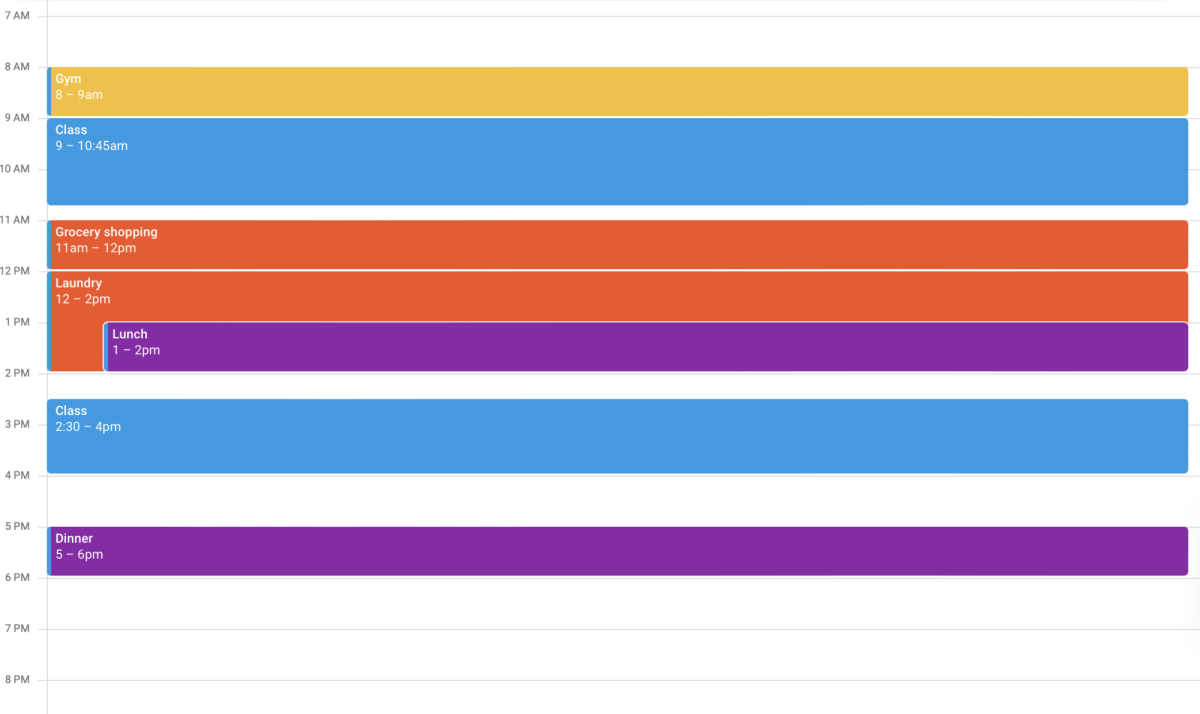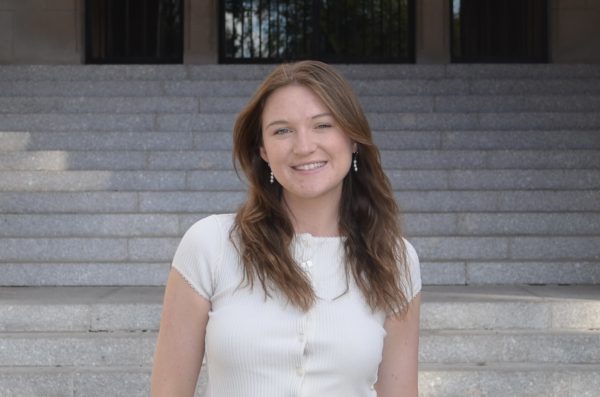When I have free time on my calendar, I never know what to do with myself. My Apple Calendar’s blank white spaces trigger my internal voice to tell me that I am not being productive enough. Looking at these harmful instincts and recognizing the value of rest nhas allowed me to let go of the Apple Calendar addiction. Hopefully, widespread recognition of the harms of the productivity mindset will transform the ways planning and time are approached.
Mobile calendars and paper planners are a productivity trigger — for better or worse. If utilized well, organization is beneficial in many ways. It allows people to devote their time to various tasks in an efficient manner. Finishing things in an organized way boosts productivity and general ease. It ought to reduce stress and allow for better sleep.
However, making productivity the end goal of calendar usage, rather than aiming at general well-being, can make the resources exploitative. For many people, calendars are approached with the goal of maximizing time. Particularly in academic environments, it can seem as if there is an endless amount of work to be done. The calendar can then transform into an instrument solely for productivity — needing to maximize gain from the seemingly limited resource of time. My day becomes a series of lined blue blocks filled with the essays I need to write, appointments with professors and study periods.
The parasite of the exploitative productivity mindset can infect even the social pastimes of my day. It feels necessary to mark every action I do in my calendar to ensure it all is accomplished in time. This is good and circles back to the original purpose of planning. I have blocked my calendar for time to spend with friends. Watching movies in O’Hare Hall with my friend Lena at 10 p.m. gets its own translucent blue block. Going to the gym before “Philosophical Ethics” gets squeezed in at 6 a.m. (though I rarely actually listen to that particular calendar command). My desire to be efficient goes overboard when I put my 11:42 a.m. teriyaki rice bowl lunch in my calendar — even if it is to ensure I have time to eat between the end of babysitting at 11:22 a.m., my train ride to Fordham University at 11:25 a.m. and 12:05 p.m. mass in Dealy Hall.
This exploitative productivity mindset has widespread damaging effects on individuals — body, mind and soul. We often hear about crippling anxiety trends among young people, but do we ever wonder if the cures we teach them can be stressful in themselves? Anxiety rates are rising everywhere. The mind has a direct connection with the body, and so stress has a range of physical displays. After three years of an addiction to Apple Calendar, my hair is thinning, I get recurring headaches and a rapid heartbeat. I am only one person — imagine how many people whose bodies are changing from these mind-altering productivity “resources.”
Outside of my own body-mind existence, my misuse of Apple Calendar disrupts my relationships. Calendars can become a god, and I am prone to putting my own schedule above others. If my calendar says to do work in the morning, and my friends want to grab bagels, I usually put my own schedule above others. I know this disease of disordered prioritization is happening everywhere. Liberalism is a way of life, and our own needs and lifestyles are often placed higher.
This mindset doesn’t solely influence my relationships earth-side, but also my spiritual relationship. My misuse of this organization tool makes me think everything is in my control. I plan my day out intensely, leading me to plan my life out intensely. My relationship with God has been focused on work rather than grace. I think I can almost will myself into being a better person. My spiritual life quickly became a number of boxes to be checked rather than a relationship to be lived.
My time abroad has shaken the relationship I have with calendars, other people, time and God to its core. I have been placed in an environment where my schedule has lessened dramatically. With the abundance of time I now have, I have learned its incredible value and importance. Time is a gift to be used, not to be exploited to indulge my own desire for control. This mindset allows me to use these calendar apps wisely. They are a tool, not an end in itself. Balancing spontaneity with productivity for me looks like setting loose boundaries when I do work. I have been forced, especially with my anxiety, to grow in self-knowledge and see what my rhythm looks like. Schoolwork is done only from 8 a.m. to 3 p.m. From 3-5 p.m., I give myself time to rest or exercise. If I have this time, I am actually motivated to be productive in the hours before 3 p.m. Having Sundays as rest provides me a reset for the rest of the week. These tips have worked for me but may not fit for everyone. That is why it is crucial to discern our own abilities in relationship to time to approach some sense of balance.
This is not just an individual issue but also a cultural one. Especially in Western society, we are pushed to be as productive as possible. Of course, productivity is good, but it cannot be our end goal. Educational systems need to teach us how to use our resources wisely across all areas. This is especially pertinent in our Jesuit institutions where cura personalis is a core tenet. If the misuse of calendars impacts our body, mind and soul, then a reeducation on these resources is necessary to truly care for the whole person.
Abigail Adams, FCRH ’26, is a philosophy major from Alexandria, Va.















































































































































































































